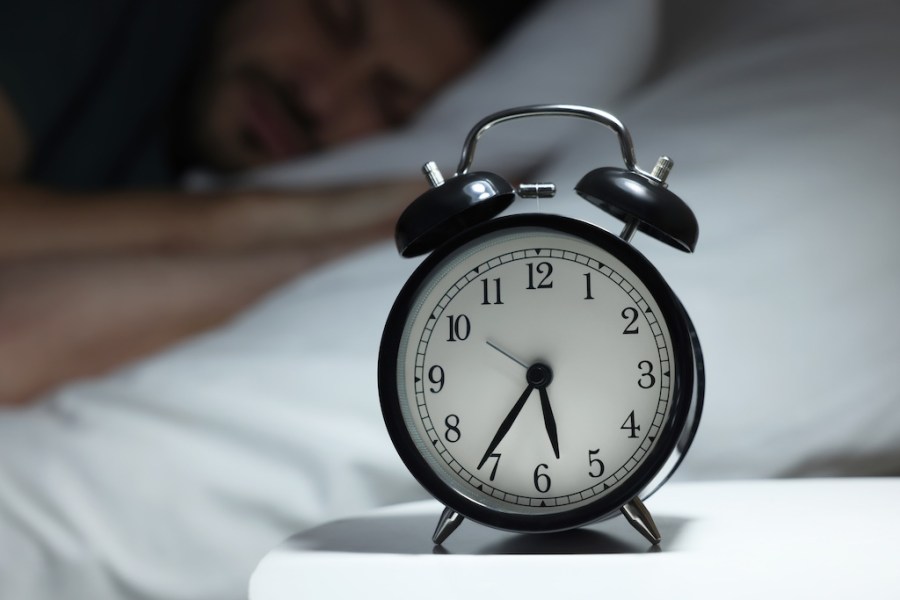Men’s Fitness columnist George Winter on what the latest sleep research has revealed.
How well, and how long, did you sleep last night? It’s an important question, because in its Sleep Manifesto 2024, The Sleep Charity notes that a whopping 43% of adults sleep less than the NHS-recommended seven to nine hours. The report further states that prolonged poor sleep is associated with various adverse outcomes like ‘cancer, type 2 diabetes (T2D), cardiovascular disease and increases in all-cause mortality.’
Sleep restriction also significantly impairs glucose clearance, potentially exacerbating insulin resistance (IR), a prevailing condition under experimental sleep deprivation; disrupts fat cell function, contributing to a decrease in whole-body insulin sensitivity; and causes muscle protein synthesis rates to drop, which could lead to muscle loss over time.
To address the implications of sleep-deprived IR, sleep research has revealed that exercise can be a potential solution by enhancing insulin sensitivity in various tissues. In a recent major review of published evidence in the journal Exercise and Sports Sciences Reviews, sleep researchers found exercise – including full-body kettlebell workouts – can be a measure to counteract the effects induced by sleep restriction. Sedentary behaviour during sleep deprivation leads to higher insulin responses compared to exercise, showcasing the potential reversal of IR with physical activity.
Despite exercise’s benefits, though, sleep restriction can hinder optimal physical activity levels. The timing of exercise is crucial, as total sleep deprivation or early awakening adversely affects exercise performance more than delaying bedtime. Evening exercise is particularly susceptible to the impacts of sleep restriction compared to morning sessions.
I thought – perhaps foolishly – that sleep could somehow be separated from the life we live when awake. It seems, however, that sleep, metabolism and exercise performance are more interconnected than we might think.
5 ways to sleep better
- Breathe it in: Mindful breathing techniques like deep breathing or progressive muscle relaxation can be your secret weapon for unwinding your mind and body before hitting the hay.
- Soothe your senses: Level up your sleep sanctuary with aromatherapy. Try out calming scents like lavender, chamomile, or cedarwood using essential oils or diffusers.
- Reflect: Grab a pen and jot down your thoughts, feelings, or even your victories from the day. A nightly journaling session can be your ticket to decluttering your mind, easing stress, and setting the stage for some quality shut-eye.
- Fuel up: Load up on sleep-friendly foods like kiwi, almonds, or cherries. Sip on herbal teas like valerian root or chamomile to top off your evening routine. These superfoods are packed with the right stuff to help you relax and drift off.
- Detox from tech: Unplug and unwind with a technology detox hour before bed. Say goodbye to screens and hello to calming activities like reading, gentle daily mobility stretches, or bedtime meditation. Now’s the time to tell your body and brain that it’s lights out for the day.







